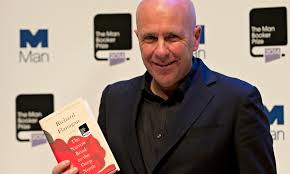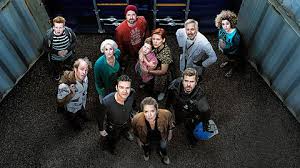Frank Tuohy (1957 [1970]) The Animal Game
The Animal Game is Frank Tuohy’s first novel, published in 1957 and out of print now. Think of Graham Greene. Then think of Frank Tuohy. I’d guess you’ve heard of the former and not the latter. I hadn’t heard of him either, until I read his story Live Bait in a collection of short stories selected by David Miller, That Glimpse of Truth. 100 of the Finest Short Stories Ever Written. We’ve all got our preferences. Miller’s is a kind of conceit, I’d guess, aimed more at the commercial market. There were some great stories and some disappointments in Miller’s choice, but the story which stuck was Live Bait. It seemed pretty much perfect. So perfect in fact I bought Frank Tuohy’s collection of short stories also called Live Bait. I even wrote a short story with many of the similar themes, but with many more failings. It’s impossible to get it right, but I keep on trying. With books I’m easily reeled in.
The Animal Game won a number of awards, but for me doesn’t quite gel, and is set in an unnamed South American country run by European and British ex-pats, the right kind of chaps that know how to get things done. Tuohy is pitch perfect about social nuances and how they’re played out. In Live Bait, for example, Andrew goes with his school friend Jeremy to fish in the grounds of The Peverills. They had a distant connection to Jeremy’s mother, which made it alright. But Andrew is told by Major Peverill, who later tries to sexually abuse him, he’s the wrong sort. ‘You mustn’t expect to come her frequently. There will be no question of that. Jeremy understands. It is different for him.’ When Andrew tells his elders that he attends the same public school as Jeremy on special terms Major Peverill cackles, ‘Good god, he admits it. The little brat admits it.’ The Perverill’s view of the social world and the good society is shaken. Similarly, The Animal Game, also stood for the last digit on the lottery ticket, and more so in life’s lottery. it involves a young Englishman, Robin Morris, an outsider. He travels to live and work in that South American county makes it difficult not to read into his journey Tuohy’s own, from scholarship boy to a first in English literature at King’s College, Cambridge, and from there to a Chair of English Literature at Sao Paul in Brazil and the insights he gained. Mrs Kochen his landlady sends her son to English school and her visceral hatred of coloured is played out when Morris hires a native housekeeper. With his class and background Morris has access to the upper echelons of the polite society that quietly goes about the business of milking wealth and running the country for their benefit. Animal Games begins with the scion of one of those families, the beautiful blonde femme fatale, Cecilia being trapped in her Packard in a road block caused by a worker’s going on strike. Ahead of her is intrigue with a naïve Morris, a truck full of pigs left in the harsh sunlight and tailback, starved, so that the animals begin to eat one another. I’m sure there’s a kind of metaphor there.









